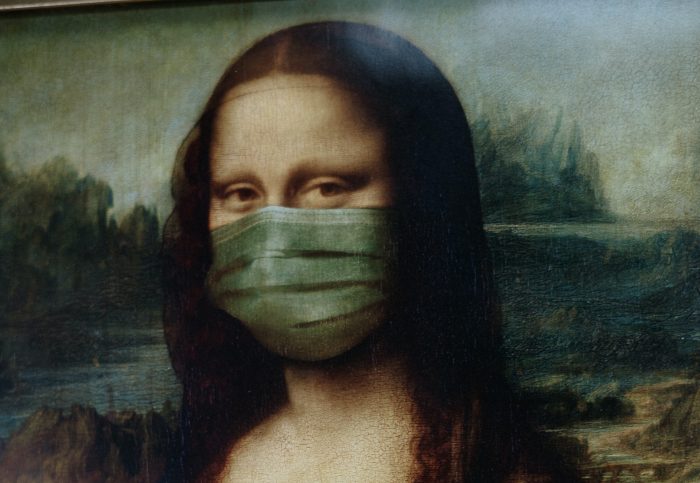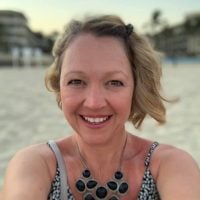Stephen R. Covey once said, “Most people do not listen with the intent to understand; they listen with the intent to reply.”
What if we all just stopped for a few moments and opened our minds to listen?
If we could just show understanding, not judgment, in what others are experiencing or fearing. If we could be more empathetic with others when what they feel does not align with our feelings on the matter.
For instance, let’s consider the COVID-19 vaccine.
In May of 2020, at the peak of the pandemic in New Jersey, I worked in a Covid unit as my second job. As a nurse witnessing my colleagues crumbling, I wanted to do more. Taking care of Covid patients on the floor was beyond heartbreaking, and, quite honestly, it was too much for me, physically and emotionally.
Twelve hours masked, only able to take sips of water or bites of food, when you could sneak off to the break room, left you depleted by the end of the shift. I only lasted five weeks, and when I punched out after the last night, I walked away with more admiration for nurses than I ever had before in my life.
And guess what? We were all doing that unvaccinated since there wasn’t one available yet.
I must admit, when the vaccine was ready for administration, I, too, was scared.
As a nurse, who also had to study research methods and processes, I felt there couldn’t possibly have been enough research done to ensure its safety. Then I did what every nurse in nursing school was taught to do when educating a patient about new medications: I weighed the risks versus the benefits. I knew I did not want to infect my medically frail patients, nor did I want to contract the virus from them.
Beyond considering the vaccine from a medical or scientific standpoint, I also weighed my decision on a more personal level. I thought of my elderly and seriously compromised father-in-law, and the decision became a no-brainer, especially after witnessing the wrath of that virus firsthand.
I decided if I could do anything to help prevent him from dying that awful death, I was going to do it. I didn’t want him to suffer, nor did I want my husband to experience the pain caused when a family member was taken by Covid. I never wanted him to feel powerless as his father died alone in a hospital, behind a closed door, with no one to keep him from being scared. I wanted to shelter him from an untimely funeral for his dad that only 10 could attend.
But mainly, I did not want those I loved to suffer unnecessarily.
You see, I took that vaccine because I cared more about what that dreaded disease could do to the people I loved than the potential harm a vaccine could do to me.
As a nurse, I consider myself relatively well-informed, but unfortunately, I don’t always know what the right answer is either. However, I’d like to be able to openly discuss this and try to help in whichever way I can.
What do we do as a country that’s been irreparably divided by politicians who battle like toddlers in a preschool over control of the newest toy—the vaccine? There are so many ways the vaccine rollout could have been handled better from day one; it became political fodder because of the election year and most of the great divide is due to the uncertainty in who really has our best interest at heart as a country, and who wants to profit off our choices (politically and financially).
My exhaustion increases by the day over the discourse and constant debating. I long for some harmony, but I know in my heart that to restore balance and civility to this nation, we all need to work together.
Here are some things you can do to become part of the solution:
>> Ask yourself what is truly driving you to avoid vaccination.
>> Read medical literature, not unreliable social media news.
>> Listen to facts from a trusted source, like your family physician.
>> Take some time with your decision, as no one has ever felt comfortable when a decision they’ve made was rushed, but in the meantime, be sure that you’re being safe for others: mask up and practice social distancing when necessary.
>> Most importantly, I would normally say “do what is right for you,” but the implications of not getting the vaccine (when you’re able to) will just lead to more of what we’re seeing now: overwhelmed hospitals, loved ones needlessly dying or getting long-lasting illnesses that are life-changing, not to mention protecting those who cannot get the vaccine, including young children.
>> Get the vaccine but do it fully informed.
Life is about choices and consequences.
“When you make a choice, you live with it” is a lesson I learned as a kid. But sadly, sometimes, it’s too late to change your mind. I’ve lost patients to the virus who did not vaccinate. And I wonder if their decisions would have been different had they known the outcome.
One gentleman who died had bought into the political conspiracy theories, and man was he passionate about his beliefs! I did not agree with him, but I respected him and listened quietly. I genuinely liked him, and I was so saddened when I heard he was gone.
Do you know what the worst part is? I’m pretty sure the politicians did not attend his funeral or send the family condolence cards to thank him for his loyalty. And do you know why? Because they don’t care. Their motivations are selfish and only with the thought of their next election in mind.
As citizens of the world, and of the United States of America, we have got to come to a mutual understanding so we can move forward. We not only need to defeat the pandemic, but we also need to find a way to bridge the divide that’s been increasing and started long before the first diagnosis of Covid was ever made in this country.
To conclude, I leave you with one final quote:
“There is so much we can do to render service, to make a difference in the world—no matter how large or small our circle of influence.” ~ Stephen R. Covey
I’m doing my part, and I’m hopeful you will do yours.











Read 11 comments and reply